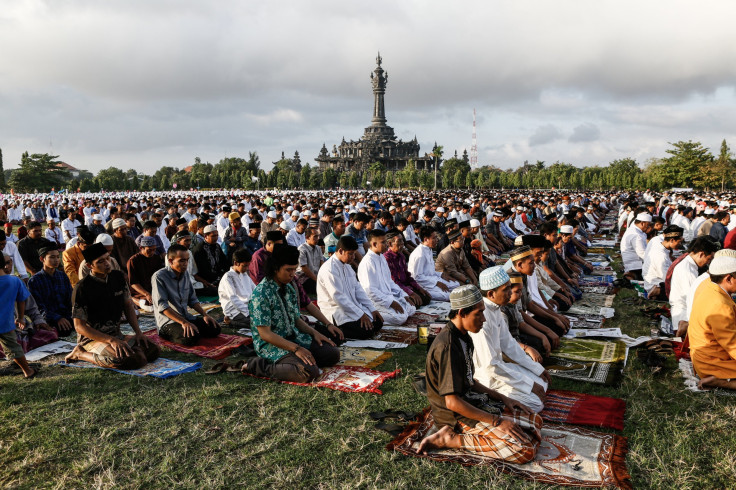Eid Al-Fitr 2018 Date, Moon Sighting: Things To Know About End Of Ramadan

Muslims across the country are preparing for the end of Ramadan to celebrate Eid al-Fitr. The end of the holy month will be either June 15 or 16, depending on when the new moon is seen.
Eid al-Fitr, which means “festival of breaking the fast,” is traditionally a three-day festival that marks the end of fasting. Ramadan is one of the five pillars of the Islamic faith. Official public holidays for Eid al-Fitr vary from one to three days across Muslim-majority nations. The date of Eid al-Fitr typically varies from country to country. The moon-sighting committee of the UAE will convene Thursday night to deliberate on and announce when Eid al-Fitr will fall.
The International Astronomical Centre, in Abu Dhabi expected Eid to be on Friday "in most Islamic countries including Saudi Arabia, Algeria, Libya, Egypt, Kuwait and Qatar."
But as the dates vary for Eid, in Virginia, the Dar Al-Hijrah Islamic Center announced its Eid celebrations would be Saturday.
After a month of fasting from sunrise to sunset, Muslims celebrate Eid with massive family feasts and prayers. Eid al-Fitr is celebrated on the first date of Shawwal. Thus, after Eid al-Fitr moon is seen, the month of Shawwal begins.
On the morning of Eid, Muslims gather in nearby mosques or outdoor spaces to perform their traditional prayer which consists of a sermon and a congressional prayer. They also exchange gifts with friends and families. Donations and gifts to charities are common on the day of Eid. Muslims wear new clothes and celebrate the day with family.
Typical sayings during the Eid holiday include "Eid Mubarak" which means "Blessed Eid" while another saying happens to be "Eid Said" which means "Happy Eid." Other greetings include, Ciid wanaagsan (Somalia), Mutlu Bayramlar (Turkey), Selamat Idul Fitri (Indonesia), Selamat Hari Raya (Malaysia, Brunei, and Singapore) and Barka da Sallah (Nigeria).
© Copyright IBTimes 2024. All rights reserved.











